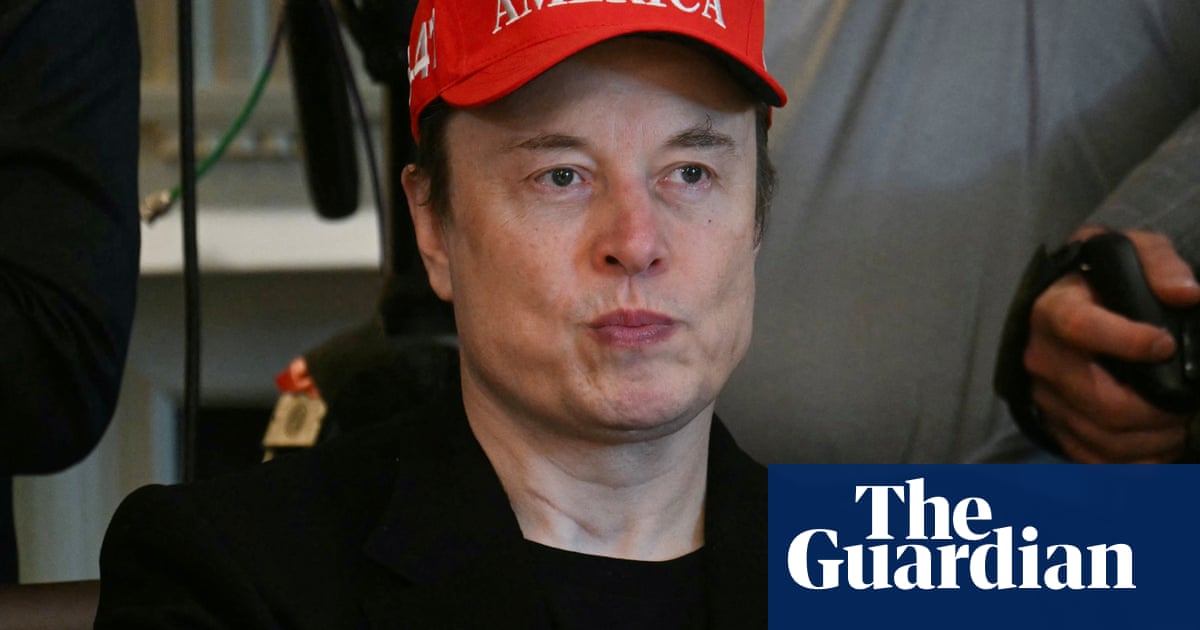Elon Musk’s so-called “brand destruction” is in full flight in Adelaide, where residents have voted overwhelmingly to reject plans for a Tesla factory.
The city of Marion inSouth Australiais considering selling 2,664 sq metres of public land – which is contaminated and not publicly accessible – to Tesla which wants to build a battery factory on the plot.
The council has consulted the community and written a report that says the benefits – including 100 full-time jobs, boosted rates revenues, $56m in economic output and “Tesla-led training programs” – outweigh the “geopolitical or symbolic criticisms expressed in submissions”.
Of the nearly 1,000 submissions sent to the local council, 95% called for the proposal to be struck down, citing “anti-Tesla and anti-Elon Musk sentiment” and “Musk’s influence on global discourse via social media platforms”, as well as the environmental impact and potential loss of green space.
Sign up for Guardian Australia’s breaking news email
While environmental concerns played a part, the Tesla boss was the main reason people voted against the project.
Those against the proposal did not hold back on the reasons for their rejection – with the city of Marion choosing to censor some submissions.
“Because Elon Musk is a [redacted] human being and a [redacted]!” one person wrote.
“Elon Musk and Tesla are a [redacted] on humanity,” another said.
“Elon Musk is a full blown [redacted],” was another’s blunt assessment. While a further submission argued the site was not right for Musk: “Destroying trees to build a factory for a company owned by a [redacted] would be a vile choice.”
“We should not support and put money in the pockets of a [redacted] who openly [redacted] salutes, is [redacted] human,” was another’s take on Tesla moving into Marion.
Another had a more prosaic concern: “Please dear God”, they wrote. “It’s not going to be good for anyone … [and] it would majorly interrupt my roller skating route”.
More than half of the 948 community submissions came from outside the council area, but submissions from those in the immediate area of the site overwhelmingly opposed the development at 121 against and 11 for.
Those who voted in favour welcomed the jobs that would be created by Telsa, the skills that would be taught, and the “visionary approach” of the world’s richest person.
Musk has faced an ongoing backlash thanks to his role in the Trump administration, where he created the “department of government efficiency” (Doge), that has seen cripplingcuts to government programs.
Tesla profits have dived recently, with analysts pinning the blame on a branding crisis thanks to Musk’s role in the White House.
Sign up toBreaking News Australia
Get the most important news as it breaks
after newsletter promotion
Musk has denied branding is an issue, and blames the “macro demand for cars” in the current economic climate.
The city of Marion mayor, Kris Hanna, said most Australians wouldn’t approach the project from a political perspective.
“But there’s certainly a core group that has very strong anti-fascist sentiment and they are directing that to Elon Musk and anything related to him,” he said.
Hanna said there was both a “natural” community response and a political campaign to increase the “no” vote.
“If the decision is not to allow the factory to proceed it won’t harm Elon Musk’s interests because Tesla will just set up somewhere else in Australia that’s more welcoming,” he said.
Dozens of submissions referred to Musk’s interventions in American and European politics and hisapparent Nazi-style saluteearlier this year.
One critic, citingGuardian reporting,wrote: “I could not think of a worse developer to sell the land to. Tesla sales have been plummetting [sic] … this is likely to attract protests and negative attention that the neighbourhood does not need or want.”
Tesla and South Australian government agencies emphasised the economic benefits to the region in their letters of support, while a handful of residents said the land should be put to productive use.
Staff at the City of Marion officially recommended the council sell the land to Tesla, with the proposal to be discussed at a council meeting on Tuesday night.
